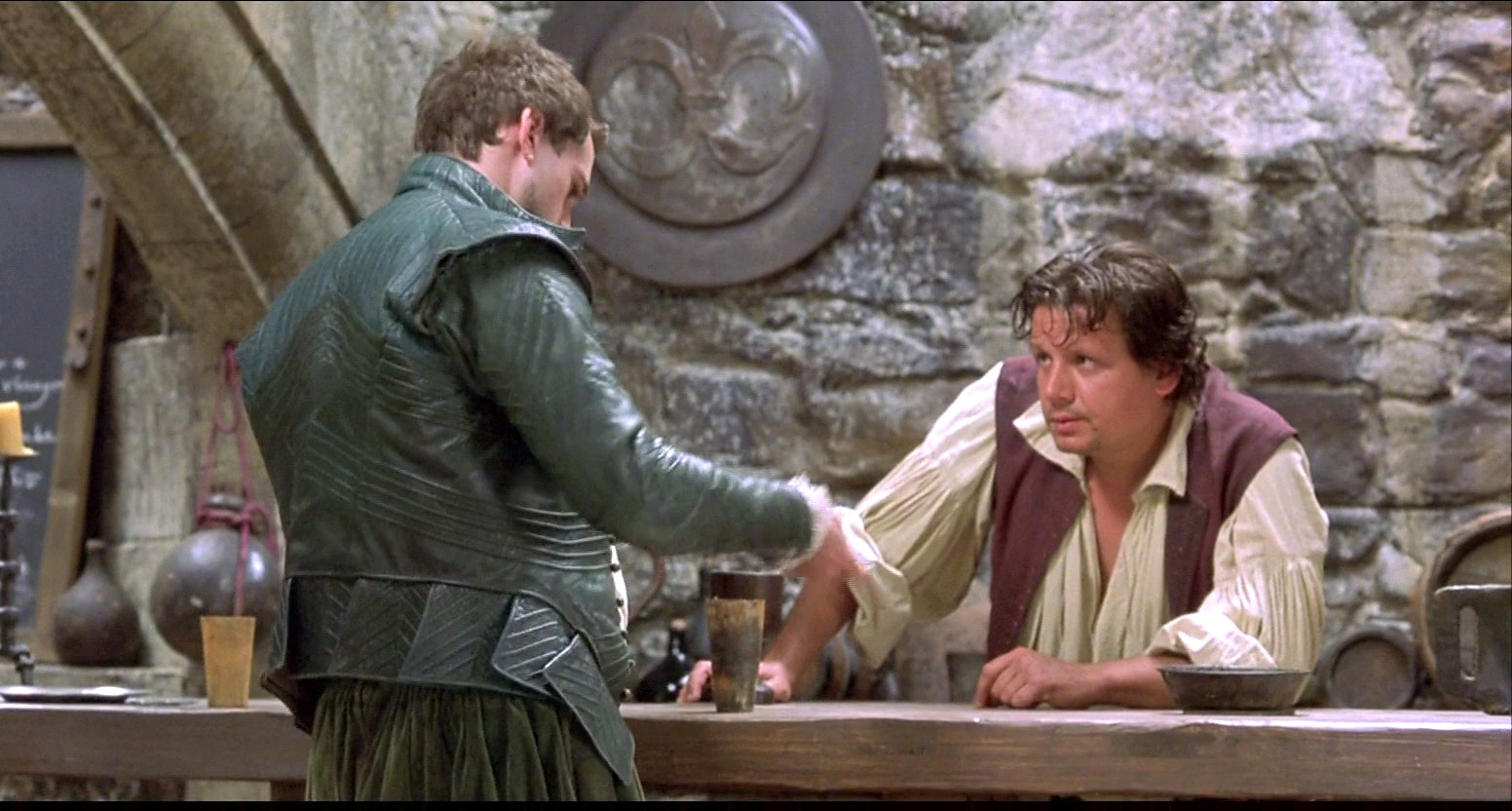Image: Joseph Fiennes and Rupert Farley in 'Shakespeare In Love'
'Voice over artist? Oh I'd like to do that, how do you get into it?' Everyone involved in the voice over business has heard that a thousand times.
In 1979, at Nottingham Playhouse, I was in the T.I.E (Theatre In Education) company at the time. Little did I know that John Wells was soon to introduce me to my first voice over job. He needed a young voice for a play he was doing in the main theatre. At this early stage of my career I had no idea of the potential in this line of work.
Years of repertory theatre, television and film work followed, and during this time back in London I was fortunate enough to be taken on by a respected voice over agent. She needed a young voice on her books and I nonchalantly agreed to let her represent me. You see in those days 'Voice Overs' were, more or less, frowned upon in the acting fraternity. For the classically trained actor it was nothing short of demeaning, but I, as an artiste with absolutely no moral compass, had no qualms about selling my soul to the commercial and corporate devils. After all, I wasn't endorsing these products but merely playing the part of the narrator. As an actor you can't always empathise with the motives of the character you play. If that were the case then only murderers could play Macbeth. The best you can do is convince the audience that you do. Voice over is no different.
Between and during theatre and screen work voice overs were very much part of my work schedule. TV and Radio commercials were a constant. Other voice work opened up for me: dubbing, language tapes, and audio books which offered the opportunity for more character based voice work. That is one of the advantages of voice work; you are not constricted by your physical appearance. On screen or stage I may not convince as a Trinidadian shopkeeper, a Mongolian yak herder or an excitable Pepperami sausage, but in voice land, and with all modesty put aside, I can say that I have enjoyed considerable success.
To date voice work has been the mainstay of my career and I very much hope that that continues to be the case. The world of voice overs has changed dramatically. There is considerably more work out there than there was then, but there are also many more people working in that avenue of the business. It is certainly not derided as an occupation any more and there are legions of actors who solely do voice work. Over crowded? Certainly.
So a quick guide in answer to those eagerly enquiring 'How do I get into voice overs?'
1: Go to drama school
2: Work in theatre, film and television.
3: Make a professional voice reel.
4: Get a good voice agent.
5: Get work.
Written by Rupert Farley.


